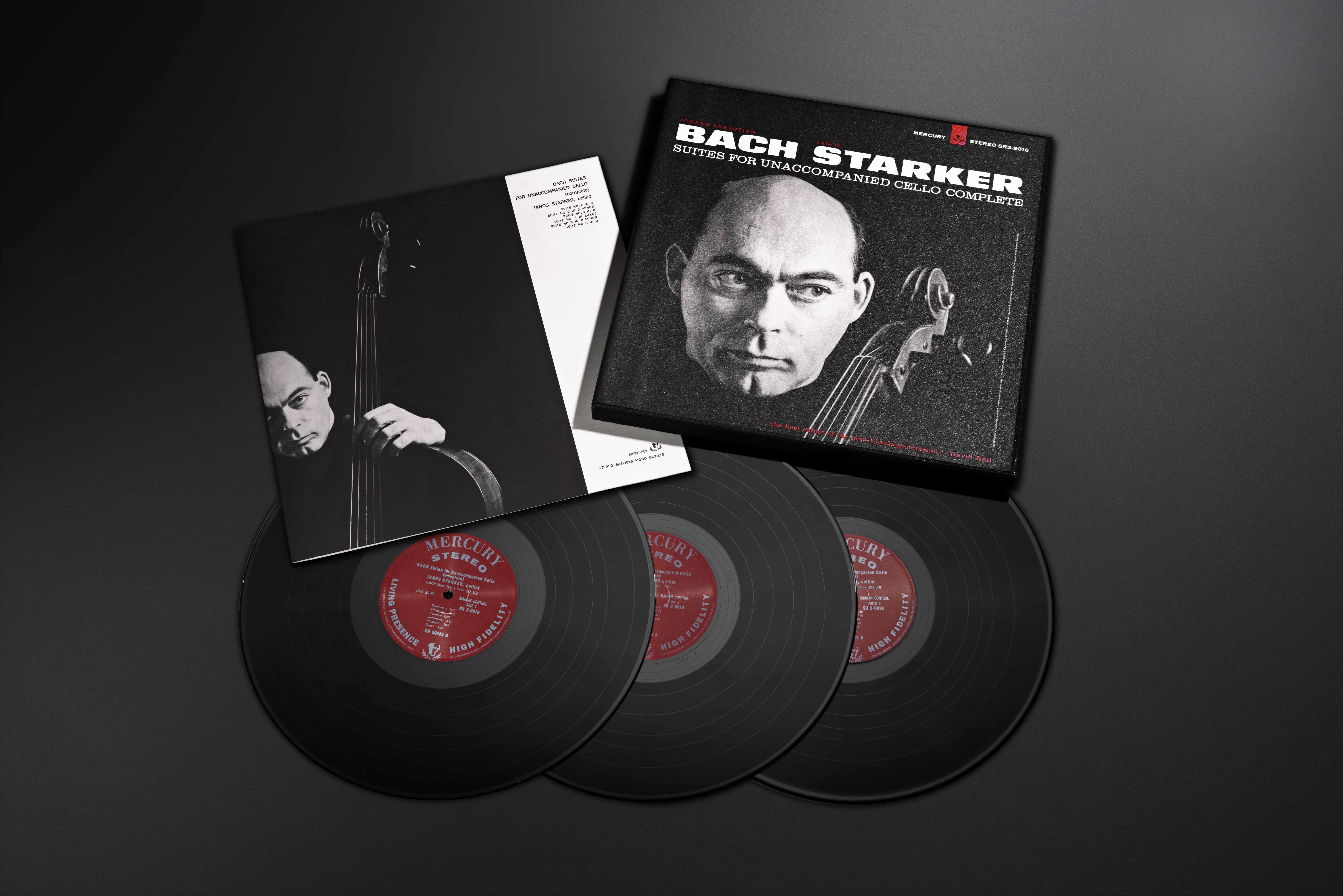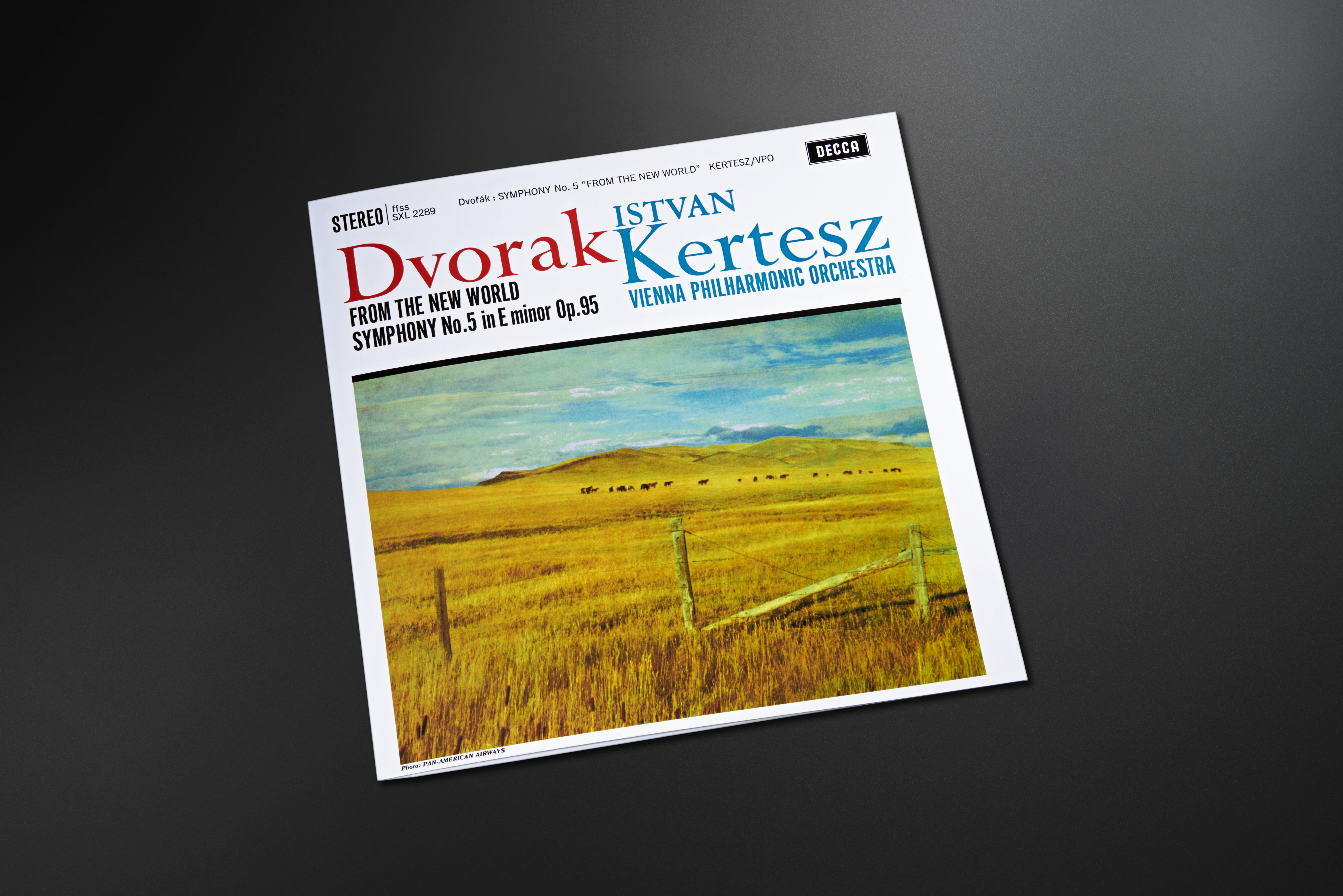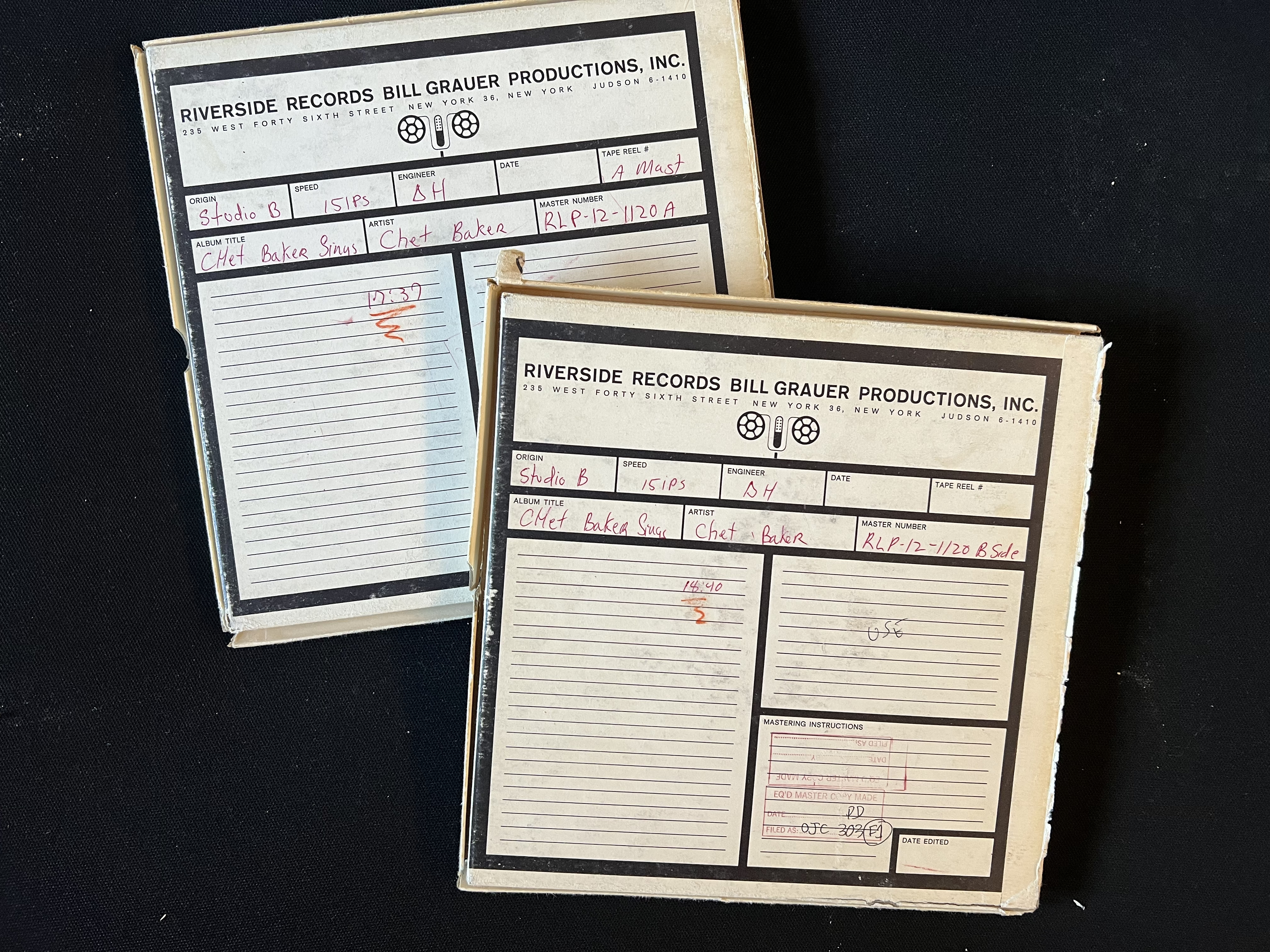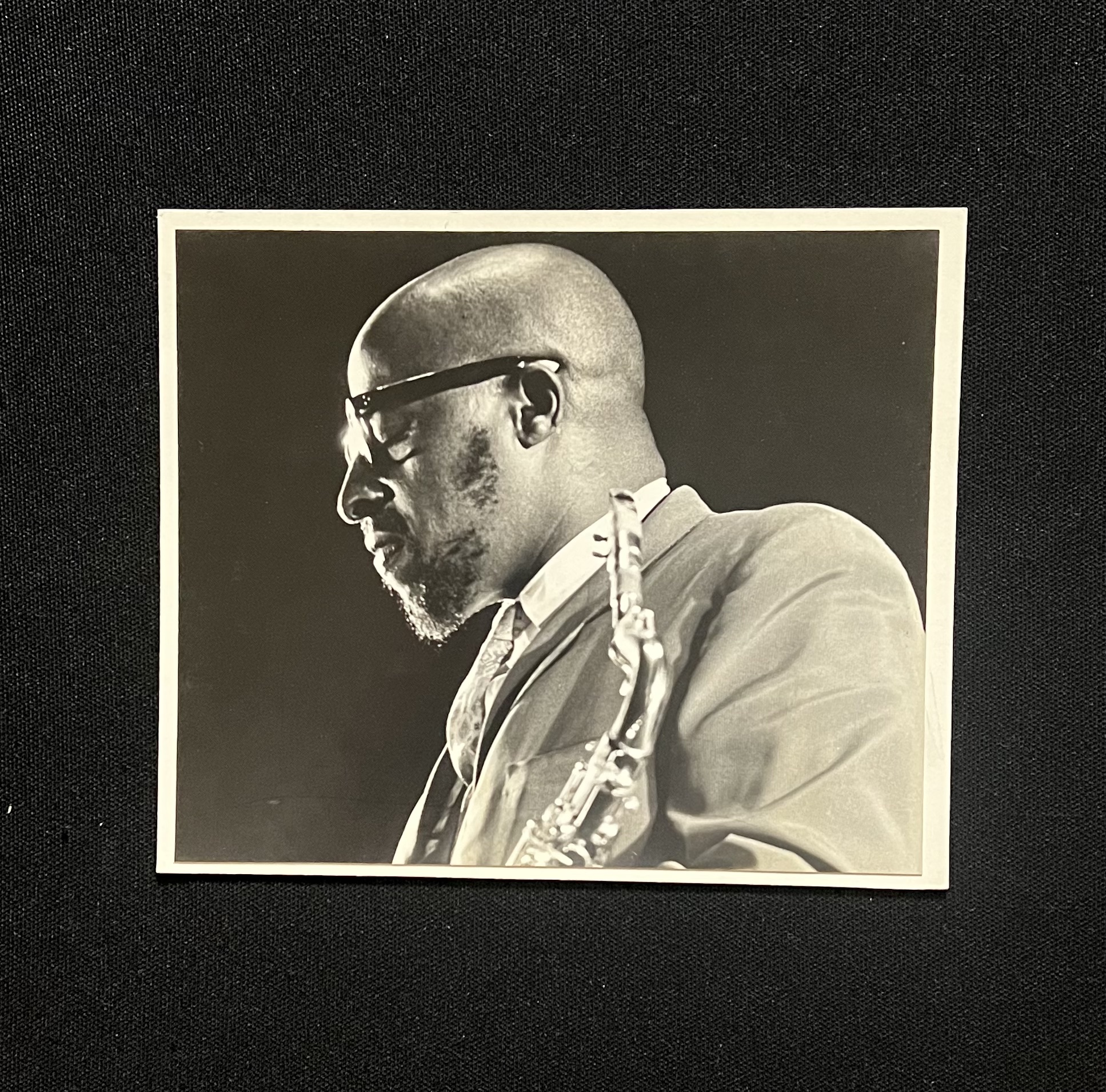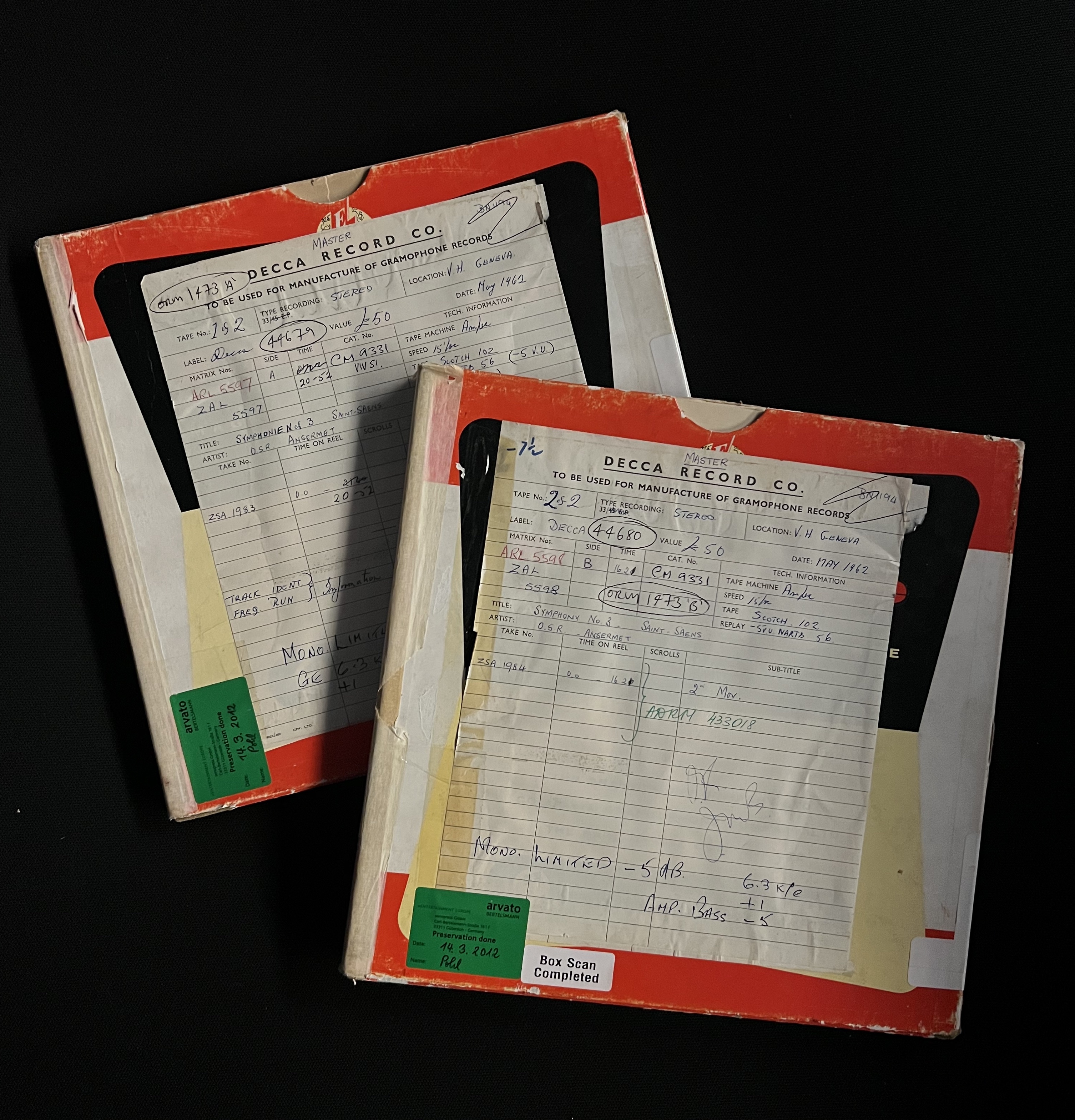Yusef Abdul Lateef (1920–2013), born William Emanuel Huddleston, was an American jazz multi-instrumentalist, composer, and author whose work transcended conventional boundaries.
Born in Chattanooga, Tennessee, and raised in Detroit, Michigan, Lateef was immersed in a vibrant jazz scene alongside musicians like Milt Jackson, Paul Chambers, Elvin Jones and Kenny Burrell. By age 18, he had mastered the saxophone and began touring professionally with swing bands. In 1949 Dizzy Gillespie invited Lateef to tour with his orchestra but by 1950 he had returned to Detroit to study composition and flute at Wayne State University. During this period he converted to Islam joining the Ahmadiyya Muslim Community and adopted the name Yusef Abdul Lateef.
While primarily known as a saxophonist and flutist, Lateef expanded jazz’s instrumental vocabulary by incorporating the oboe and bassoon—unusual choices for the genre—alongside non-Western instruments like the bamboo flute, shanai, shofar, xun, arghul, and koto. His deep interest in non-Western music, particularly from Asia and the Middle East, led him to explore tonalities, scales, and textures far outside the standard jazz canon. At a time when most American jazz musicians drew only from Western and Latin traditions, Lateef was crafting what would later be called “world music” decades before the term existed.
Lateef’s global, spiritual sensibility culminated in “Eastern Sounds”, recorded in September 1961 and originally released in 1962 on Prestige Records’ Moodsville imprint. Accompanied by pianist Barry Harris, bassist Ernie Farrow (who also played the rabat, a Middle Eastern string instrument) and drummer Lex Humphries, Lateef crafted an album that fused modal jazz and hard bop with Middle Eastern and Asian melodic ideas. The album opens with “The Plum Blossom,” featuring the Chinese xun, and continues with deeply expressive renditions of “Love Theme from Spartacus” and “Love Theme from The Robe,” which showcase Lateef’s gift for lyrical interpretation and tonal control. Original compositions like “Blues for the Orient” and “Ching Miau” reflect his seamless integration of non-Western modes into jazz frameworks.
“Eastern Sounds” is marked by its calm, introspective atmosphere—free of showmanship yet full of virtuosity. Its beauty lies in its meditative restraint, the unity of its musical vision, and the quiet confidence of its performers. The album stands as one of Lateef’s most accessible and influential recordings, a blueprint for cross-cultural fusion that maintains emotional depth and spiritual clarity.
Cut directly from the original analog master tapes, through our unique all valve1965 Ortofon / Lyrec vinyl cutting system in True Mono*. No equalisation, compression or any other processing was added during the cutting process.
All sleeve artwork made by hand and authentically letter-pressed on a 1963 Heidelberg SB.
This edition of 345 copies is priced at £395.00 UK pounds. Order here.
* Where everything in the chain from the tape head, the tape pre-amplifier, the cutting amplifier and the dedicated mono cutter head is a single channel pathway: This early technology avoids phase issues (smearing of the sound) that is frequently encountered when cutting with todays “dual” or “pseudo” mono cutting systems.
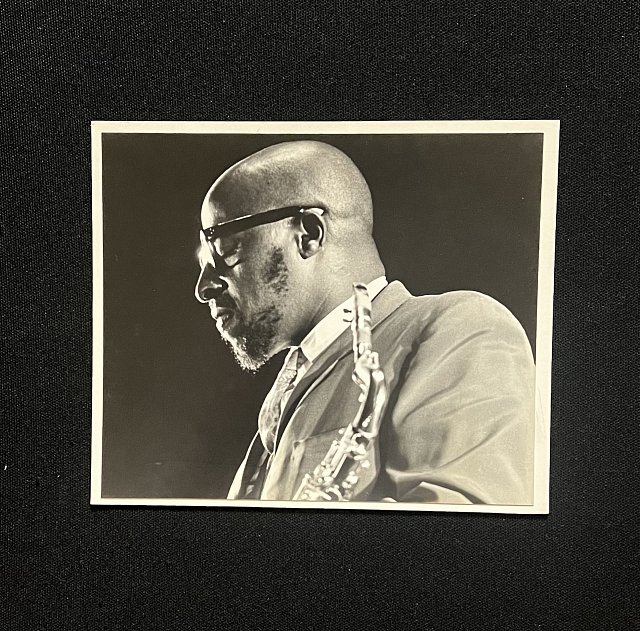 Original sleeve photo by Don Schlitten
Original sleeve photo by Don Schlitten
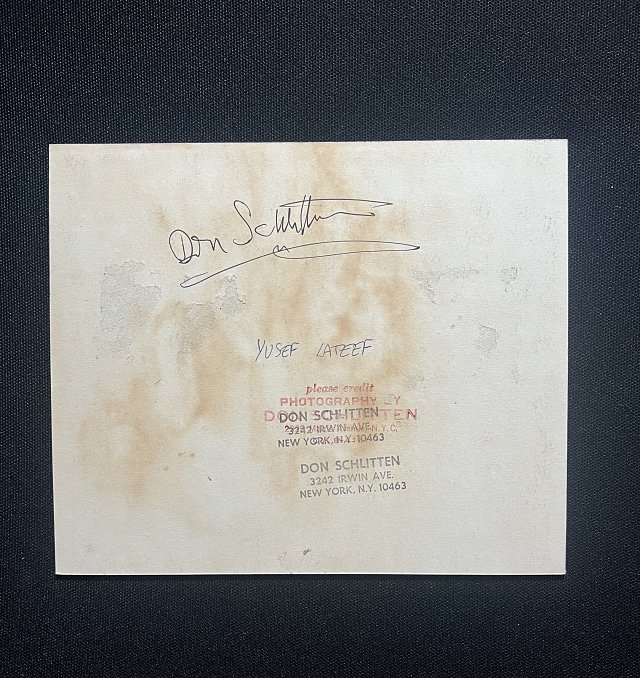 Original sleeve photo by Don Schlitten rear (signed)
Original sleeve photo by Don Schlitten rear (signed)
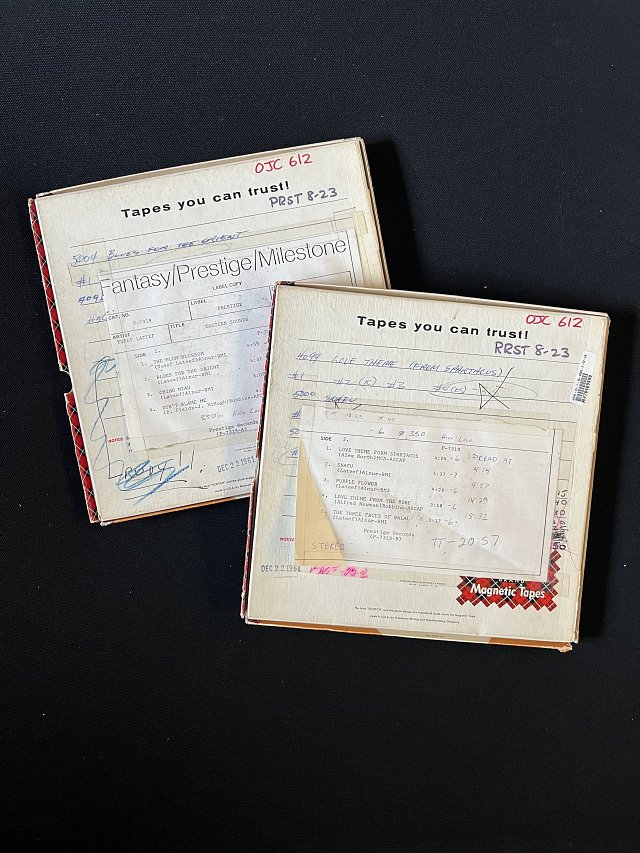 Original master tapes.
Original master tapes.

